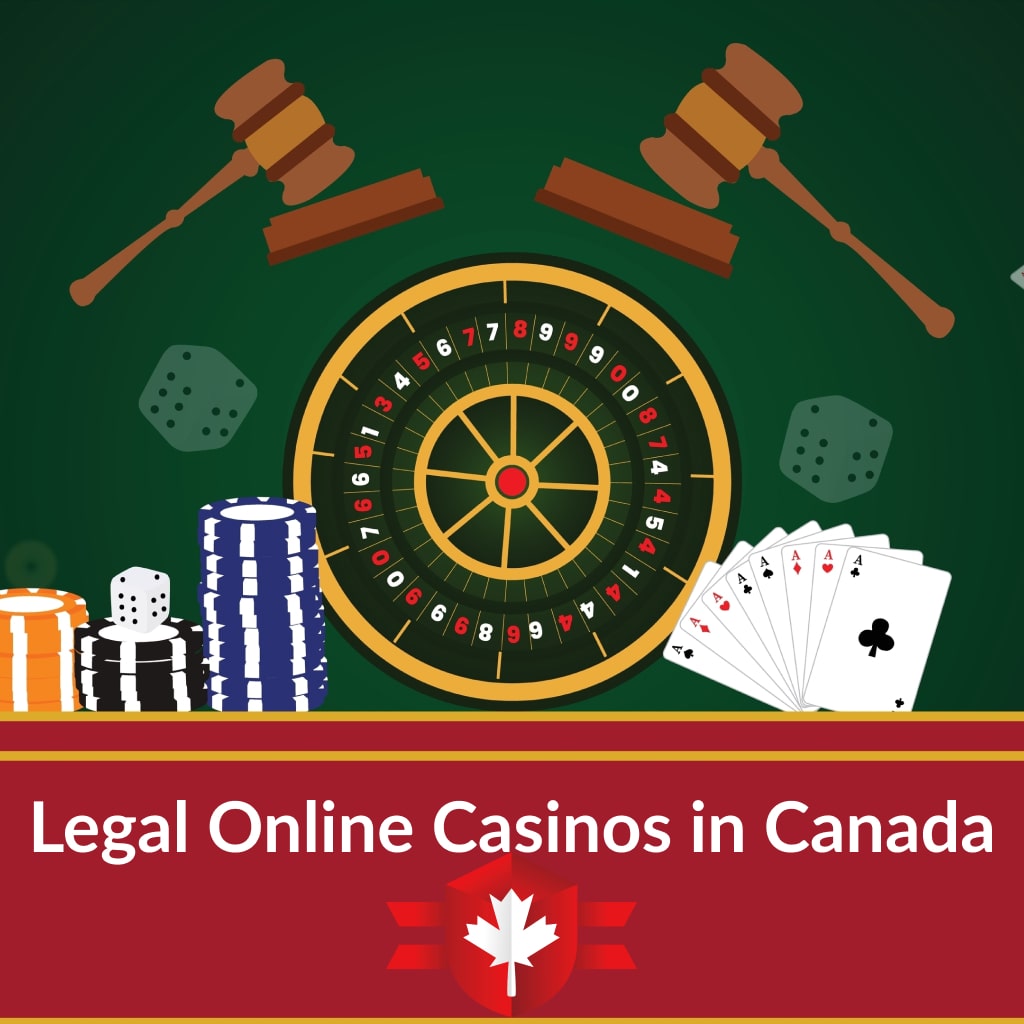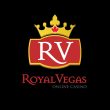Legal Online Casinos in Canada

Canadian Online Gambling Laws
In Canada, online gambling laws vary depending on the province or territory. While some provinces have their own regulatory bodies and licensing requirements, others rely on national regulations. Generally, online gambling is legal in Canada, but operators must adhere to strict guidelines to ensure compliance with local laws.
Why Choose Legal Online Casinos?
Opting for legal online casinos in Canada offers numerous advantages. Firstly, legal casinos operate under regulatory oversight, ensuring fairness and transparency in gaming. Additionally, they prioritize player protection, offering responsible gambling tools and support services. Moreover, legal casinos provide secure payment options and adhere to stringent data protection measures.
What Makes An Online Casino Legal?
Several factors determine the legality of an online casino in Canada. Firstly, the casino must hold a valid license issued by a recognized regulatory authority. This license ensures that the casino complies with industry standards and regulations. Secondly, legal casinos must operate in accordance with provincial or national laws governing online gambling. Finally, they must uphold strict standards of fairness, security, and player protection.
Criteria For Choosing The Best Legal Online Casino
Licensing And Regulatory Compliance
One of the foremost criteria for selecting the best legal online casino is ensuring it holds a valid license from a reputable regulatory authority. Licenses from jurisdictions like Malta, the UK, or Kahnawake Gaming Commission indicate that the casino operates within strict regulatory frameworks, guaranteeing fair play and player protection.
Security Measures And Data Protection
Top-tier online casinos employ advanced security measures to safeguard players’ sensitive information and financial transactions. Look for casinos that utilize SSL encryption technology to protect data and ensure secure communication between the player’s device and the casino’s servers.
Game Variety
The best legal online casinos offer a diverse selection of games to cater to different preferences. From classic table games like blackjack and roulette to modern video slots and live dealer games, a wide variety ensures there’s something for every type of player.
Gaming Fairness
Fair gaming practices are non-negotiable when choosing an online casino. Look for casinos that utilize certified random number generators (RNGs) to ensure the fairness and randomness of game outcomes. Additionally, reputable casinos undergo regular audits by independent testing agencies like eCOGRA or iTech Labs to verify game fairness.
Customer Support
Reliable customer support is crucial for addressing any queries or concerns that may arise during your online gaming experience. The best online casinos offer multiple channels of customer support, including live chat, email, and phone support, with knowledgeable and responsive representatives available around the clock.
Payment Options
A variety of secure and convenient payment options is essential for hassle-free transactions at online casinos. Look for casinos that support popular payment methods like credit/debit cards, e-wallets, bank transfers, and cryptocurrencies, allowing players to deposit and withdraw funds with ease.
Bonuses & Promotions
Generous bonuses and promotions can enhance your gaming experience and boost your bankroll. Look for online casinos that offer competitive welcome bonuses, regular promotions, and loyalty rewards programs to maximize your value as a player.
Reputation And Player Reviews
Before committing to an online casino, it’s essential to research its reputation and read player reviews. Reputable casinos should have positive feedback from players regarding their gaming experience, payment processing, and customer service.
Mobile Compatibility
In today’s digital age, mobile compatibility is paramount for online casinos. The best legal online casinos offer responsive and user-friendly mobile platforms or dedicated mobile apps, allowing players to enjoy their favorite games on the go, anytime and anywhere.
Regulatory Authorities And Legality
Licensed Operators
Regulatory authorities play a pivotal role in overseeing the legality and operations of online casinos. In Canada, provinces like Ontario, British Columbia, and Quebec have established regulatory bodies responsible for licensing and regulating online gambling operators. These authorities ensure that licensed operators adhere to strict guidelines and standards to provide a safe and fair gaming environment for players.
Player Protection
One of the primary objectives of regulatory authorities is to ensure player protection. Licensed operators are required to implement responsible gambling measures, including self-exclusion options, deposit limits, and resources for problem gambling support. Additionally, regulatory bodies monitor operators’ compliance with these measures to safeguard players from potential harm associated with excessive gambling.
Taxation And Revenue Generation
Regulation of online gambling also involves taxation and revenue generation for the government. Licensed operators are subject to taxation on their gaming revenue, contributing to government coffers and supporting various public services and initiatives. Taxation policies may vary between provinces, with some jurisdictions implementing specific tax rates or revenue-sharing agreements with operators.
Legal Recognition
Regulatory authorities provide legal recognition to licensed operators, granting them the authority to offer online gambling services within specific jurisdictions. Licensed operators must comply with all applicable laws and regulations, including anti-money laundering measures, consumer protection laws, and advertising standards, to maintain their legal status and operate legally.
Legal Advice
For individuals interested in online gambling, seeking legal advice can help navigate the complex regulatory landscape and ensure compliance with applicable laws. Legal experts can provide guidance on licensing requirements, regulatory obligations, tax implications, and other legal considerations associated with operating or participating in online gambling activities.
International Standards
Regulatory authorities often adhere to international standards and best practices to ensure the integrity and fairness of online gambling operations. Collaboration with international regulatory bodies and participation in forums such as the International Association of Gaming Regulators (IAGR) facilitate the exchange of knowledge and expertise to uphold industry standards and address emerging challenges in the global online gambling market.
Is Online Gambling Legal In Canada?
Overview of Canadian Online Gambling Laws
Online gambling in Canada operates within a complex legal framework that involves federal, provincial, and territorial regulations. While the Criminal Code of Canada prohibits certain forms of gambling activities, including operating illegal gambling operations, it does not explicitly address online gambling. As a result, the legality of online gambling in Canada varies depending on the type of gambling activity and the jurisdiction in which it operates.
Federal Laws
The Criminal Code of Canada is the primary legislation governing gambling activities across the country. Section 207(4)(b) of the Criminal Code allows provinces and territories to conduct and manage lotteries and games of chance, providing them with the authority to regulate online gambling within their respective jurisdictions. However, this provision does not extend to private operators, raising questions about the legality of offshore online casinos and betting sites catering to Canadian players.
Provincial Regulation
Each province and territory in Canada has the authority to regulate and license gambling activities within its borders. As such, online gambling laws and regulations vary between provinces and territories. Some provinces, such as British Columbia, Quebec, and Ontario, have established regulatory bodies to oversee online gambling operations and offer legal online casino and betting options to residents. Other provinces may have different regulations or prohibit certain forms of online gambling altogether.
Legal Online Gambling Options
Despite the absence of federal legislation explicitly permitting online gambling, several provinces have legalized and regulated online gambling activities within their jurisdictions. Legal online gambling options in Canada may include government-operated online casinos, sports betting platforms, and lottery websites authorized by provincial regulatory authorities. Players can access these legal online gambling sites and participate in various games and betting markets while complying with applicable laws and regulations.
Offshore Operators and Grey Market
While some provinces offer legal online gambling options, Canadian players may also access offshore online casinos and betting sites that operate outside the country’s regulatory framework. These offshore operators may accept Canadian players without necessarily holding licenses from Canadian authorities. However, participating in online gambling activities offered by offshore operators may involve legal risks, as these operators are not subject to Canadian laws and regulations.
Legal Considerations for Players
Individuals engaging in online gambling activities in Canada should be aware of the legal considerations and potential risks associated with their chosen platforms. It is essential to verify the legality of online gambling options in their respective provinces or territories and ensure compliance with applicable laws and regulations. Players should also exercise caution when using offshore gambling sites, as they may lack legal protections and oversight compared to licensed domestic operators. Seeking legal advice can provide clarity on legal issues related to online gambling in Canada and help players make informed decisions.
In Canada, the concept of a legal online casino encompasses several key factors, including licensing, security measures, and compliance with relevant regulations. Let’s delve into what makes an online casino legal and safe for Canadian players:
Licensing and Regulation:
A legal online casino in Canada must hold a valid gambling license issued by a recognized regulatory authority. Licensing ensures that the casino operates in compliance with strict standards for fairness, player protection, and responsible gambling practices. Reputable regulatory bodies include the Kahnawake Gaming Commission, the Malta Gaming Authority, and the UK Gambling Commission.
Security Measures:
Safe online casinos in Canada employ advanced security protocols to safeguard players’ personal and financial information. This includes encryption technology to protect data transmissions, secure payment processing systems, and robust authentication procedures to prevent unauthorized access to accounts.
Compliance with Laws and Regulations:
Legitimate online casinos in Canada adhere to all applicable laws and regulations governing the gambling industry. This includes compliance with anti-money laundering laws, age restrictions, and responsible gambling measures. Casinos must also ensure that their games are fair and transparent, with regularly audited random number generators (RNGs).
Transparent and Responsible Operations:
A safe online casino demonstrates transparency in its operations, providing clear terms and conditions, including information on bonuses, promotions, and withdrawal policies. Additionally, reputable casinos promote responsible gambling practices by offering self-exclusion tools, setting deposit limits, and providing access to support resources for players experiencing gambling-related issues.
Ontario Gambling Laws:
In Ontario, online gambling is regulated by the Alcohol and Gaming Commission of Ontario (AGCO). The province is in the process of launching its own legal online gambling market, which will require operators to obtain licenses and adhere to stringent regulatory requirements. Players in Ontario should only engage with licensed online casinos to ensure legal and safe gaming experiences.
Online Casino License:
An online casino license is a prerequisite for legal operation in Canada. Casinos must undergo thorough scrutiny and meet specific criteria to obtain a license from a reputable regulatory authority. Holding a valid license demonstrates that the casino operates with integrity and is subject to oversight by regulatory bodies to protect players’ interests.
Safe Canadian Online Casinos:
Safe Canadian online casinos prioritize the security and well-being of their players. They offer a secure gaming environment, fair and transparent gameplay, and reliable customer support. Players can identify safe casinos by checking for valid licenses, positive reviews from other players, and certifications from independent auditors such as eCOGRA.
In summary, a legal online casino in Canada is one that operates in compliance with regulatory requirements, prioritizes player safety and security, and promotes responsible gambling practices. Players should conduct thorough research and choose reputable casinos to enjoy a safe and enjoyable gaming experience.
FAQs
-
How can I ensure fair gameplay at a legal online casino?
At legal online casinos, fair gameplay is ensured through the use of random number generators (RNGs), which generate unpredictable outcomes for games. Additionally, reputable casinos are licensed and regulated by recognized authorities, ensuring compliance with strict standards for fairness and transparency.
-
What payment methods are accepted at legal online casinos?
Legal online casinos typically accept a wide range of payment methods to cater to the diverse needs of players. These may include credit/debit cards, e-wallets (such as PayPal, Neteller, and Skrill), bank transfers, prepaid cards, and cryptocurrencies like Bitcoin.
-
Are all online casinos legal?
No, not all online casinos are legal. It’s essential to research and choose licensed and regulated casinos to ensure a safe and secure gambling experience. Licensed casinos operate under the oversight of regulatory authorities and adhere to strict standards for player protection and fairness.
-
What makes an online casino legal?
Several factors contribute to the legality of an online casino. Primarily, legal online casinos are licensed and regulated by recognized gambling authorities. They comply with relevant laws and regulations, provide fair and transparent gaming experiences, and prioritize player safety and security.
-
Do online casinos offer bonuses and promotions?
Yes, online casinos often offer various bonuses and promotions to attract and retain players. These may include welcome bonuses for new players, reload bonuses, free spins, cashback offers, and loyalty programs. It’s essential to read the terms and conditions associated with bonuses to understand their wagering requirements and other restrictions.















